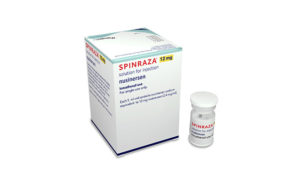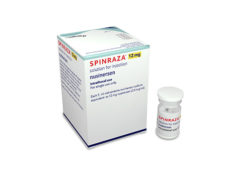
UK’s National Institute for Health and Care Excellence (NICE) has published its Appraisal Consultation Document (ACD) outlining a ‘minded no’ for the routine funding of Spinraza (nusinersen) for the treatment of 5q spinal muscular atrophy (SMA) in England, Wales and Northern Ireland.
SMA is a debilitating and life-threatening muscle-wasting rare disease, which takes away a person’s ability to walk, eat and, ultimately, breathe. Children with the most severe form of SMA rarely live to see their second birthday.
Terry O’Regan, vice president and managing director of Biogen UK and Ireland, says: “We are very disappointed that NICE has issued a ‘minded no’, however we are not surprised given the challenges of assessing rare disease medicines via the standard technology appraisal (STA) route, and our expressed reservation of the suitability of this route for evaluating medicines such as nusinersen. Sadly, this decision and the lengthy timeframe of the whole process highlights the UK challenge in providing access to rare disease medicines in a timely manner, similar to other leading economies. To date, 20 European countries including Scotland (and more across the world) have already made nusinersen available. We share the concerns of the SMA community, and remain focused on finding a way to make this important treatment available to patients who may benefit throughout the UK as soon as possible. We urge NICE and NHS England to continue to work with us on agreeing the terms of a managed access agreement (MAA) so that patients in England, Wales and Northern Ireland can share equality in access compared to other countries across Europe and the world.”
NICE began assessing nusinersen via its STA route in January 2018 after an 8-month delay in the decision regarding whether it would consider the treatment via its STA process which all medicines are subject to, or its ‘Highly Specialised Technologies’ (HST) route which is intended to provide greater flexibility for innovative medicines to treat rare diseases. The STA is not designed for rare diseases, and Biogen has continually maintained that this process is unsuitable for nusinersen. Latest data suggests almost 50% of rare disease medicines receive reimbursement in England, and on average it takes two years from marketing authorisation to access. Nusinersen received orphan status from the FDA and the European Medicines Agency (EMA) and is being reviewed by many health services across the world as a specialised medicine. The NHS in Scotland has already made nusinersen routinely available to patients with type 1 SMA, and their reformed process which comes into effect on the 1st October 2018 will see it also consider the medicine for types 2 and 3.
With NICE planning to provide final guidance in November 2018, the draft ACD shared recently noted the clinical benefit of nusinersen, and the urgent need for a medicine to treat SMA, but concluded that the extent of the overall benefit remained uncertain, particularly due to the lack of available long-term data. Absence of long-term data is typical of any recently introduced rare disease medicine, Biogen state in a press release, and the nusinersen clinical development programme is the largest body of evidence for an interventional approach in SMA, with over five years of data. In addition, other challenges cited include cost effectiveness measures, which rely heavily on quality of life—an extremely difficult measurement in a population dominated by infants and young children. Such challenges are common for rare disease medicines, especially if they are the first treatment available.
Biogen will be responding to the specific points raised in the ACD to clarify and provide further clinical and economic evidence for nusinersen, and are fully prepared to work alongside NICE and the NHS to address budget impact, sustainability and risk-sharing to manage the access to nusinersen appropriately. However, collaboration and flexibility on how the above challenges are addressed within the STA process will be central to the achievement of an MAA. Biogen’s ambition remains focused on securing access to nusinersen for all those who could benefit from the treatment.
O’Regan continues: “We understand the financial pressure that many health systems are under and are committed to working collaboratively with NICE, the NHS, and representatives from the clinical and patient community to find a solution to the access challenge. We have already made positive strides towards a MAA framework even before we received the draft guidance, and now is the time to accelerate this outside of the restrictive parameters of the STA process. We urge both parties to rapidly work with us and other stakeholders to agree the details of a MAA within the planned timeframe originally set out by NICE, so that patients in desperate need do not continue to live in uncertainty”.













